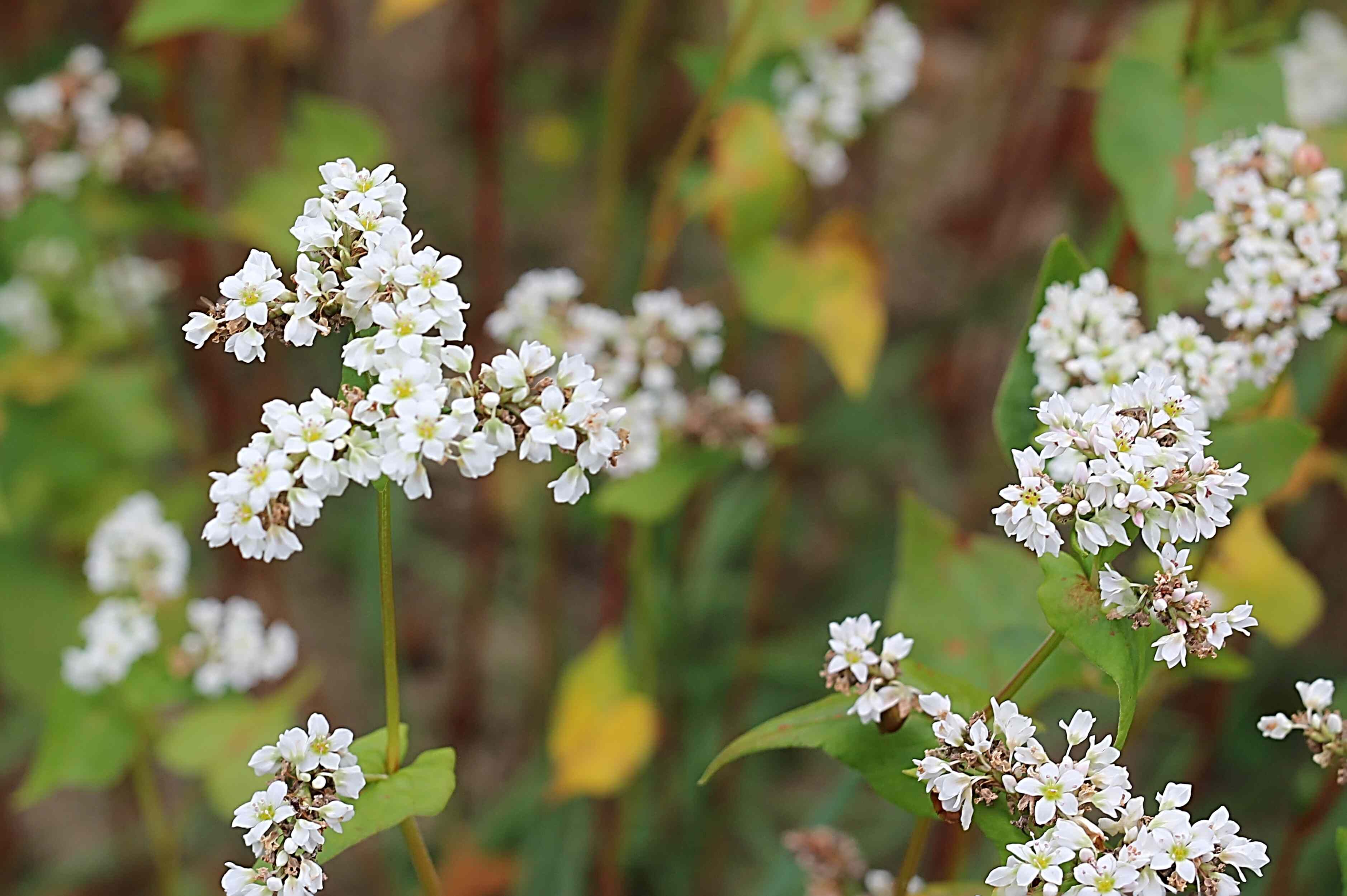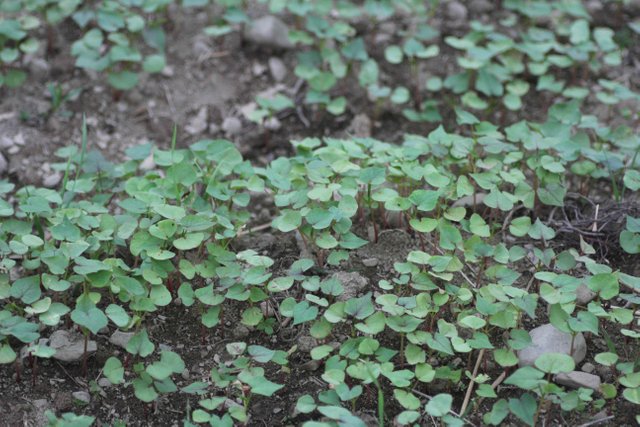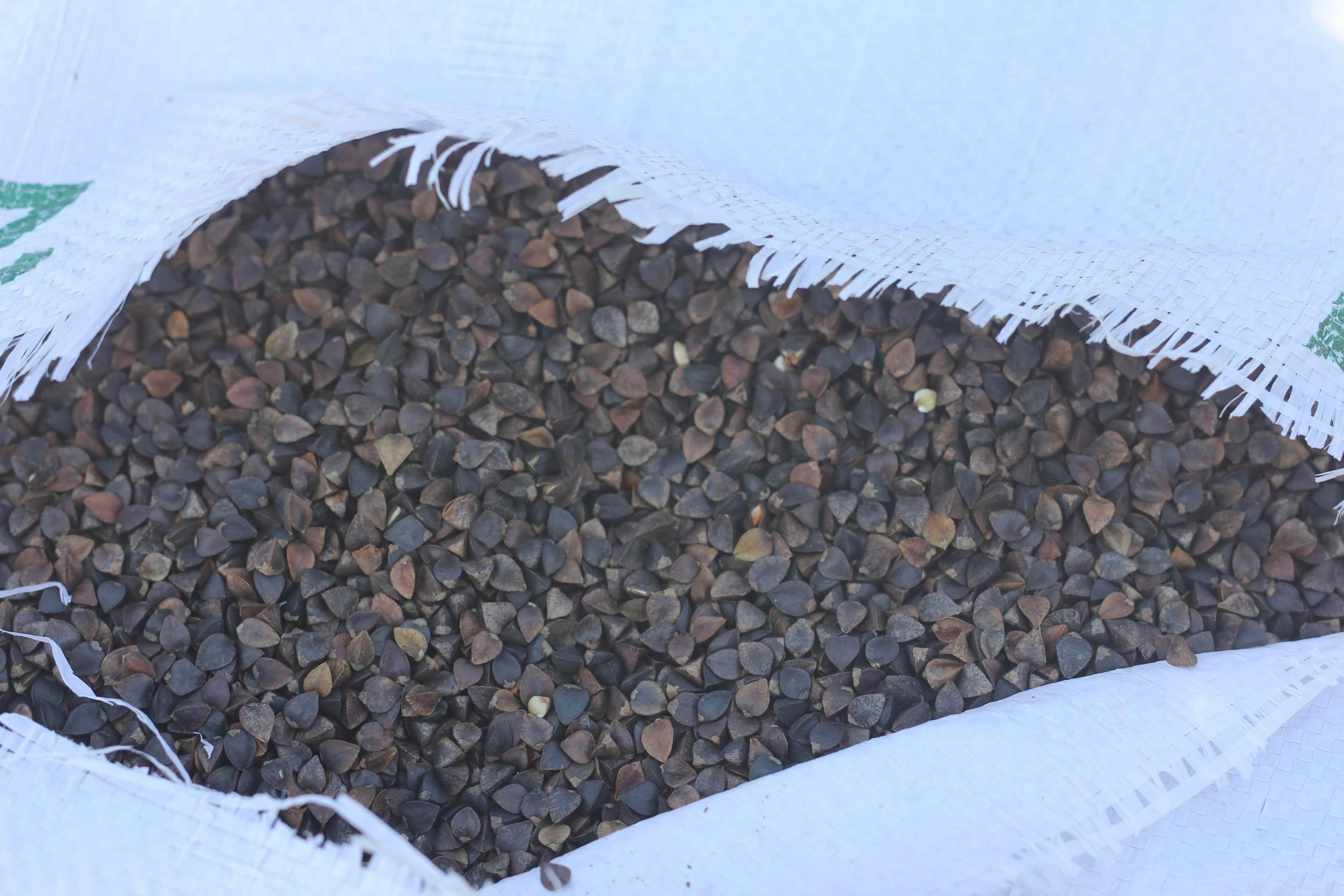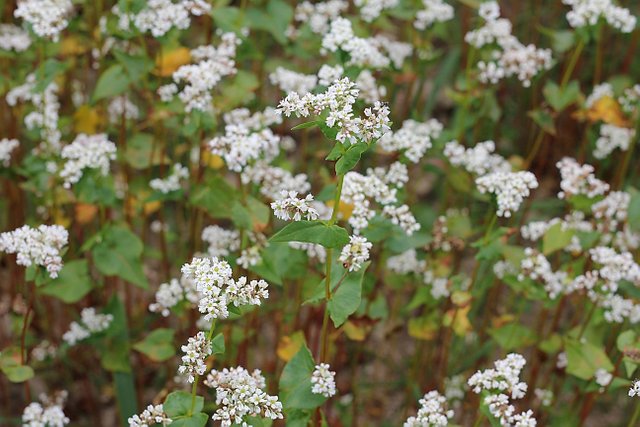The Amazing Buckwheat "Green Manure" for Home Gardens!

Cover crops or "green manure" are a valuable part of building & maintaining good soil health, especially in a home garden.
We use cover crops in our fields but also in the vegetable gardens and raised beds and the benefits have been tremendous.
Cover crops help us to garden natures way. A small bed of buckwheat in bloom will attract many beneficial insects, especially bees - they LOVE it!
Buckwheat (Fagopyrum esculentum) has become by far our most preferred cover crop. It adds loads of nutrients and organic matter back to the soil while also smothering out a lot of the weeds. When times right, it can also be cut back a few weeks after it flowers and will re-seed itself providing a second growth. Most of all, it provides beautiful white flowers attracting and providing habitat for pollinators and beneficial insects, the bees absolutely love buckwheat!
It grows really quickly and can reach up to 3FT tall in three weeks so it's really versatile and can be used throughout the season. Once we've harvested a bed we can sow some buckwheat and start building up that soil for the next season or we can sow the buckwheat in the spring for fall planting of garlic.
We never let a bed sit empty exposed to the elements. Instead we put the buckwheat to work for us. It's a win-win situation.
 Don't forget that you can also eat the buckwheat as micro greens ... never hurts to sow extra and pick some for salads!
Don't forget that you can also eat the buckwheat as micro greens ... never hurts to sow extra and pick some for salads!
Highlights of buckwheat
- Smothers weeds
- Attracts pollinators such as bees
- Attracts beneficial insects
- Effective at extracting phosphorus from the soil
- Dies off after first frost (annual)
- Micro greens

Planting
We try not to work our soil too much so we simply broadcast the buckwheat over the surface by hand. This has worked really well for us and I don't feel that you have to till and disc the soil to plant it - but for the recommended planting you can read this.
Getting two growths
Getting a second growth of buckwheat is pretty easy. Lightly till it in several weeks into it's flowering period. This will reseed a second crop. Depending on how long your growing season is you can get up to three crops this way. (We barely manage 2).
Phosphorus
Buckwheat takes up phosphorus that is otherwise unavailable to crops and releases these nutrients to future crops as the plant material breaks down in the soil. The roots of the plants activate slow releasing, organic fertilizers like rock phosphate. Buckwheat’s dense & fibrous roots cluster in the top ten inches of soil, providing a large root surface area for nutrient uptake. source
Growing Conditions
Buckwheat performs well on over farmed soils and soils with high levels of decaying organic matter. It was often the first crop planted on cleared land during the settlement of woodland. I've read that buckwheat does not do well in compacted, drought, or wet soils. That said our soil is heavy clay and can be either very soggy or very dry and it's performed very well.
It is an annual and is not frost tolerant (we love this).

Undercover Farmers
Learn how three farmers in Stanly County, NC, started using multispecies cover crops and how they were able to realize economic returns on their investment in the first year (feature length).
Resources
http://articles.extension.org/pages/18572/buckwheat-for-cover-cropping-in-organic-farming
https://www.westcoastseeds.com/shop/seasonal/buckwheat-5/
http://www.hort.cornell.edu/bjorkman/lab/buck/guide/sowinghow.php
Building a greener, more beautiful world one seed at a time.
Homesteading | Gardening | Frugal Living | Preserving Food| From Scratch Cooking|
You can also find me at: walkerland.ca | Facebook
Photo copyright: @walkerland


I have been reading everything I can find about using cover crops and watching gabe browns seminar lectures about using cover cropos to build soil carbon.
This is a subject I am terribly interested in. Thank you for the great article.
We are still students of it ourselves, there's so much to learn. So far it's been truly beneficial, the soil is getting better each year.
I have always preferred clover or even green beans as a cover crop to add nitrogen back into the soil but I have never tried buckwheat as a cover crop. Thanks for the information.
What I'd like to know is exactly how it breaks down. I saw frost kills it but you said it had a dense mat 10" down. How do you plant into that w/o tilling?
That video was pretty good, until they got to the part about using herbicides to kill the cover crop. Round-up?? That's what many use for drydown...
yeah, I just ignore all of the pesticide/herbicide/chemicals bits. IO meant to mention that and forgot. :(
It seems like all the farming websites and videos still toss that in there with a side bit on organic practices. They'll learn eventually I think...hope.
It breaks down really well for us. It was not a thick mat at all by the time spring arrived. In the raised bed I just chop it up with shears. It's fantastic. I'll share photos of the whole process this year so you can better see the full picture of what we do. We just hand spread the seed today because we are expecting lots of rain this week. Hopefully a good start to the season.
I've seen examples of organic growers planting in the living mulch - it's really interesting and I'd like to try that as well but probably not this year ...already started too many new projects and I still have questions about how to make that work! :)
I did try the broadcast method into living mulch and none germinated. Lotta money down the tubes. Not sure what we did wrong...
That's why I'm curious about how you do it. If I use cover crops, it goes on bare, or almost bare ground.
it's so hard to speculate on what happened so I won't try because I know how frustrating that can be! :)
Maybe try it in a very small area as a test bed?
This has some interesting info as well: http://www.hort.cornell.edu/bjorkman/lab/covercrops/pdf/bwbrochure.pdf
Maybe it's just me, but I have a really hard time reading something that starts off listing herbicide use....
Reality is a lot of farmers use chemicals so this is not surprising that they need to provide warning that some chemicals will prevent buckwheat from growing.
I've always read a lot of material from a wide range of sources to put together my plans. Its easy enough to take and leave the parts that are irrelevant to our practices while still gleaning some good insights from solid research.